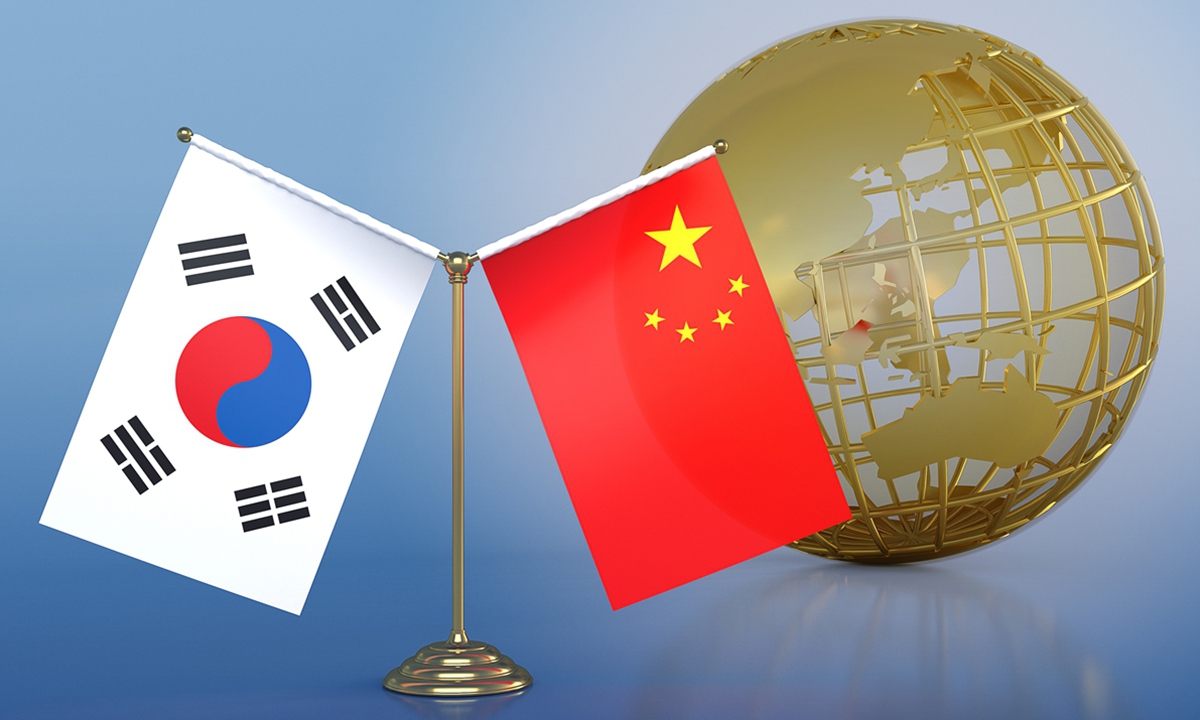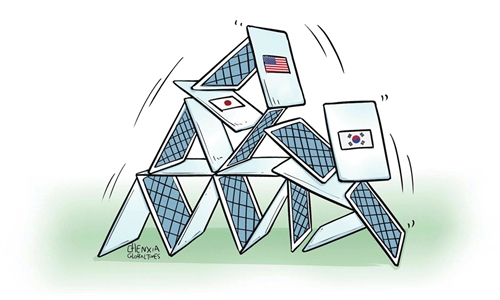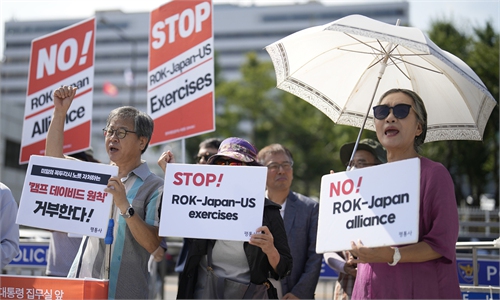S.Korea should not 'take China's goodwill as concession,' analyst warns after foreign ministers' phone call

China South Korea Photo:VCG
China has maintained continuity and stability in its policy toward South Korea, but a Chinese observer warned on Friday that the country should not interpret China's goodwill gestures as a concession.
The comments came after Chinese Foreign Minister Wang Yi held a phone conversation with South Korean Foreign Minister Park Jin on Thursday.
The phone call also reflected the incumbent South Korean government's anxiety and uncertainty over China-South Korea relations, which have been on a downward spiral following the US-Japan-South Korea summit last month, said observers.
Wang, who is also a member of the Political Bureau of the Communist Party of China Central Committee, said China's policy toward South Korea has maintained continuity and stability, adding that the development of bilateral relations has an internal driving force and inevitable logic, and should not be influenced by any third party.
Wang said that China and South Korea should stick to the original intention behind establishing diplomatic ties, stick to the right direction of friendly cooperation, continue to enhance mutual understanding between the two peoples, guard against interference from external factors and refrain from ideological confrontation.
Noting that mutually beneficial economic and trade cooperation is the ballast of bilateral relations, Wang said that with enormous economic development potentials and a large market, China is accelerating the construction of a new system for higher-level open economy and expanding China-South Korea cooperation will help South Korea achieve sustainable prosperity and development.
Wang expressed hope that South Korea will strengthen its strategic autonomy, reject various anti-globalization maneuvers and attempts to decouple or sever supply chains, and deepen mutually beneficial cooperation in various fields, so as to better serve the people of the two countries.
China also supports South Korea in playing a positive role as chair of the China-Japan-South Korea cooperation mechanism, Wang added.
Voicing support for the China-Japan-South Korea mechanism has fully demonstrated China's goodwill in developing a relationship with South Korea, but the administration of President Yoon Suk-yeol should not take this as a sign of concessions and should not issue further provocations on sensitive topics, Zhan Debin, director and professor with the Center for Korean Peninsula Studies at the Shanghai University of International Business and Economics, told the Global Times on Friday.
For his part, Park said South Korea looks forward to enhancing high-level exchanges with China, strengthening people-to-people exchanges, improving mutual understanding and actively building a sound and mature South Korea-China relationship.
Park said that this year marks the beginning of the second 30 years of bilateral relations and the government of President Yoon Suk-yeol speaks highly of the fruitful results achieved in bilateral relations since the establishment of diplomatic ties and will continue to value and promote bilateral ties.
South Korea has no intention of engaging in decoupling targeting a specific country, and "de-sinicization" is neither possible nor desirable, Park said.
Park's expressions mainly delivered South Korea's expectation for stabilizing its relationship with China, but it is Seoul that has been acting in a provocative way and challenging the status quo of China-South Korea relations, according to Zhan, who said Park's remarks about supply chains were also very vague.
The South Korean government is facing great pressure domestically over its shift in foreign policy toward the US and Japan, which has been further fueled by the governmental silence on Japan's dumping of nuclear-contaminated wastewater.
Interactions with China could be amplified by South Korea as "evidence" that leaning toward the US and Japan is not at the cost of China ties, Zhan said, "but it is completely wrong."
Development of relations with South Korea will not be prioritized over core interests such as the Taiwan question and the South China Sea issue. If the US further coerced South Korea to stir up troubles on those sensitive topics, it remains to be seen how Seoul would react, Zhan noted.
China has offered enough goodwill and it is time for South Korea to show sincerity. China's policy toward South Korea should be to listen to its words and observe its actions, but also to abandon any illusions and be prepared for potential challenges, Zhan said.



